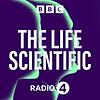
The Life Scientific
BBC Radio 4
Categories: Science & Medicine
Listen to the last episode:
The engineering industry, like many other STEM sectors, has a problem with diversity: one that Dawn Bonfield believes we can and must fix, if we're to get a handle on much more pressing planetary problems...
Dawn is a materials engineer by background, who held roles at Citroën in France and British Aerospace in the UK. But, after having her third child, she made the difficult decision to leave the industry - as she thought at the time, for good. However a short spell working in post-natal services and childcare gave her new skills and a fresh perspective. This led to Dawn rehabilitating the struggling Women in Engineering Society and creating ‘International Women In Engineering Day’, which has just celebrated its 10th anniversary.
Today, she’s Professor of Practice in Engineering for Sustainable Development at King’s College London, and the founder of Magnificent Women: a social enterprise celebrating the story of female engineers over the past century. She’s also President of the Commonwealth Engineers’ Council and has had her work supporting diversity and inclusion recognised with an MBE.
Dawn talks to Professor Jim Al-Khalili about why 'inclusive engineering' should not be dismissed as tokenism, and why she's optimistic about the engineering sector's power to change the world.
Presented by Jim Al-Khalili Produced by Lucy Taylor
Previous episodes
-
319 - Dawn Bonfield on inclusive engineering, sustainable solutions and why she once tried to leave the sector for goodTue, 23 Jul 2024
-
318 - Raymond Schinazi on revolutionising treatments for killer virusesTue, 16 Jul 2024
-
317 - Janet Treasure on eating disorders and the quest for answersTue, 09 Jul 2024
-
316 - Anne Child on Marfan syndrome and love at first sightTue, 02 Jul 2024
-
315 - Conny Aerts on star vibrations and following your dreamsTue, 25 Jun 2024
-
314 - Mike Edmunds on decoding galaxies and ancient astronomical artefactsTue, 23 Apr 2024
-
313 - Hannah Critchlow on the connected brainTue, 16 Apr 2024
-
312 - Molly StevensTue, 15 Nov 2011
-
311 - Colin BlakemoreTue, 08 Nov 2011
-
310 - Sir Michael MarmotTue, 01 Nov 2011
-
309 - Steven PinkerTue, 18 Oct 2011
-
308 - Paul NurseTue, 11 Oct 2011
-
307 - Fiona Rayment on the applications of nuclear for net zero and beyondTue, 09 Apr 2024
-
306 - Nick Longrich on discovering new dinosaurs from overlooked bonesTue, 02 Apr 2024
-
305 - Sheila Willis on using science to help solve crimeWed, 27 Mar 2024
-
304 - Sir Charles Godfray on parasitic wasps and the race to feed nine billion peopleTue, 19 Mar 2024
-
303 - Jonathan Van-Tam on Covid communication and the power of football analogiesTue, 12 Mar 2024
-
302 - Michael Wooldridge on AI and sentient robotsTue, 19 Dec 2023
-
301 - Mercedes Maroto-Valer on making carbon dioxide usefulTue, 12 Dec 2023
-
300 - Sir Harry Bhadeshia on the choreography of metalsTue, 05 Dec 2023
-
299 - Cathie Sudlow on data in healthcareTue, 28 Nov 2023
-
298 - Sir Michael Berry on phenomena in physics' borderlandsTue, 21 Nov 2023
-
297 - Professor Sarah Harper on how population change is remodelling societies.Tue, 14 Nov 2023
-
296 - Sarah Blaffer Hrdy on human evolution and parenthoodTue, 07 Nov 2023
-
295 - Edward Witten on 'the theory of everything'Tue, 31 Oct 2023
-
294 - Alex Antonelli on learning from nature's biodiversity to adapt to climate changeTue, 19 Sep 2023
-
293 - Paul Murdin on the first ever identification of a black holeTue, 12 Sep 2023
-
292 - Bahija Jallal on the biotech revolution in cancer therapiesTue, 05 Sep 2023
-
291 - Sir Colin Humphreys on electron microscopes, and the thinnest material in the worldTue, 29 Aug 2023
-
290 - Chris Barratt on head-banging sperm and a future male contraceptive pillTue, 22 Aug 2023
-
289 - Gideon Henderson on climate ‘clocks’ and dating ice agesTue, 15 Aug 2023
-
288 - Deborah Greaves on wave power and offshore renewable energyTue, 08 Aug 2023
-
287 - Harald Haas on making waves in light communicationTue, 27 Jun 2023
-
286 - Anne Ferguson-Smith on unravelling epigeneticsTue, 20 Jun 2023
-
285 - Anne-Marie Imafidon on fighting for diversity and equality in scienceTue, 13 Jun 2023
-
284 - Bruce Malamud on modelling risk for natural hazardsTue, 06 Jun 2023
-
283 - Gillian Reid on making chemistry countTue, 30 May 2023
-
282 - Andre Geim on levitating frogs, graphene and 2D materialsTue, 23 May 2023
-
281 - Julie Williams on Alzheimer’s diseaseTue, 28 Mar 2023
-
280 - James Jackson on understanding earthquakes and building resilienceTue, 21 Mar 2023
-
279 - Marie Johnston on health psychology and the power of behavioural shiftsTue, 14 Mar 2023
-
278 - Julia King on manipulating metals and decarbonising transportTue, 07 Mar 2023
-
277 - Danny Altmann on how T cells fight diseaseTue, 28 Feb 2023
-
276 - Haley Gomez on cosmic dustTue, 21 Feb 2023
-
275 - Adrian Smith on the power of Bayesian statisticsTue, 07 Feb 2023
-
274 - Clifford Johnson on making sense of black holes and movie plotsTue, 31 Jan 2023
-
273 - Rebecca Kilner on beetle behaviours and evolutionTue, 24 Jan 2023
-
272 - Pam Shaw on the research battle against motor neurone diseaseTue, 17 Jan 2023
-
271 - Chris Elliott on fighting food fraudTue, 10 Jan 2023
-
270 - A passion for fruit fliesTue, 18 Oct 2022























